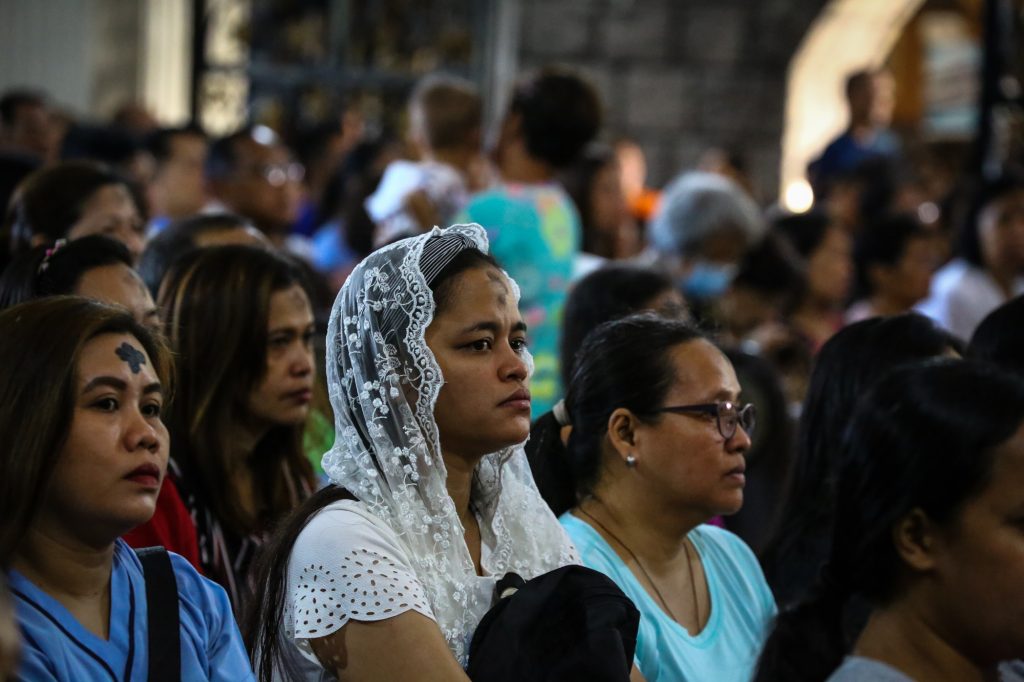
It has been two weeks already since the start of the Church’s synodal process, the process of consultation with everyone — from parishioners to monks to members of the academe, and even non-Christians — ahead of the 2023 synod of bishops in Rome.
The Roman Catholic Church has been holding these “synods,” or gatherings, for centuries, but it is seldom, according to several observers, that these were done in such a sweeping manner wherein everyone is supposed to be involved.
The word “synod” comes from an ancient Greek term that means “coming together” or “traveling together.” History tells us that early Christian leaders would come together to pray before making decisions on matters affecting Christian communities in a particular region.
The two-year process launched by Pope Francis this month is supposed to help make Church governance “more open and inclusive of all its members.” Participants are supposed to reflect on contemporary issues — from sex scandals to climate justice to human rights — confronting the people of God.
It is interesting to note, however, that many lay people, the main actors in the process, seem to be not aware of what they are going into. Even those who are supposed to be active in the life of the institutional church are puzzled about what to do or their role in the exercise.
I sent out a few questions to people who are active in Church — ministers of the Holy Eucharist, choir members, those involved in the youth ministry, parish workers, catechists, among others — and I was surprised by how unprepared they are about the whole process.
Many, not all of them, said they are aware of the “synodal process” from the homilies of the priests and the bishops. They said they wanted to be part of the proceedings but did not know how to go about it. There were those who asked what is the “process” all about.
Let me give you a picture of what people on the ground, at least those who answered the questions I sent, know or think about the “synodal process.”
Are you aware of the “synodal process” being undertaken by the Catholic Church? What do you think of it?
I only became aware of it after reading it online. I think it is a great idea. I feel it is encouraging, but my reaction was “Well, it’s about time!” (insert laughing emoji here)
Will you be participating in the process?
I think I have no choice (Our parish priest will ask me to participate haha.) although I am not sure how. Maybe in the diocesan level, vicariate level then parish level?
As for the platforms, I do not know what those will be (the Diocesan Pre-Synodal Consultation was just launched last Saturday, October 16). Not sure if non-Catholics and LGBTQs will be represented, but I do hope so.
What are the issues you want to raise/propose if you have the chance to participate in the process?
Priests should be more “visible” to their parishioners in the peripheries and not just at the altar.
Based on experience, and from the stories that I have heard before the pandemic, parishioners usually try their best to go to church or to attend Mass even if they live far from the parish church/chapel because they appreciate the priest or the church community.
[Priests] should be more visible now more than ever because usually the poorest do not have the means to “attend” online Masses, and because of the pandemic, [the poor] feel neglected. I do not mean that the priest should himself distribute food packs (although that’s nice, too). Maybe he can schedule some sort of “pastoral visit.”
We usually have “seasoned” priests assigned in a parish. I’m sure we need their “wisdom” and “experience,” but parishes also need young priests who can guide and inspire the youth and children, at least to keep up with or match the energy of the young people.
I feel that there are many groups and ministries that do not want to get their hands “dirty” to help the Church reach out to the needy even just by volunteering to, let’s say, repack rice, help out in feeding programs by cooking food, etc. Maybe they have forgotten their mission as a group/ministry.
There are some members or servers who think that because they are part of a group or a ministry they should be first to get aid from the Church, forgetting that there are those who are more unfortunate than them.
Lay groups or organizations should also be first in reaching out, coordinating, and cooperating in extending assistance to marginalized communities and help support groups in need, such as the youth, families of migrant workers, persons with disabilities, single mothers, families of victims of killings, etc. They should remember that they are not there to be served but to serve because the Church needs all the help it can get.
Are you optimistic of the outcome of the synodal process? Do you think the voice of lay people, as envisioned by Pope Francis, will be heard?
Yes, although I am not sure if everyone will be represented, or will be heard, or will be able to voice out their concerns and/or suggestions.
What are the outcomes that you want to see in this synodal process?
That this process would be comforting to most people (the laity) because they were able to speak or voice out their opinion or suggestions. They would feel that they too are important or “included,” especially those in the peripheries or the marginalized.
That the bishop/clergy would listen more to parishioners, they should not be limited to the opinion or suggestions of a few, or those who are close to them.
I hope that after this, more people will be inspired or encouraged to serve and commit themselves in serving the Church.
Jose Torres Jr is editor-at-large of LiCAS.news
Source: Licas Philippines
0 Comments